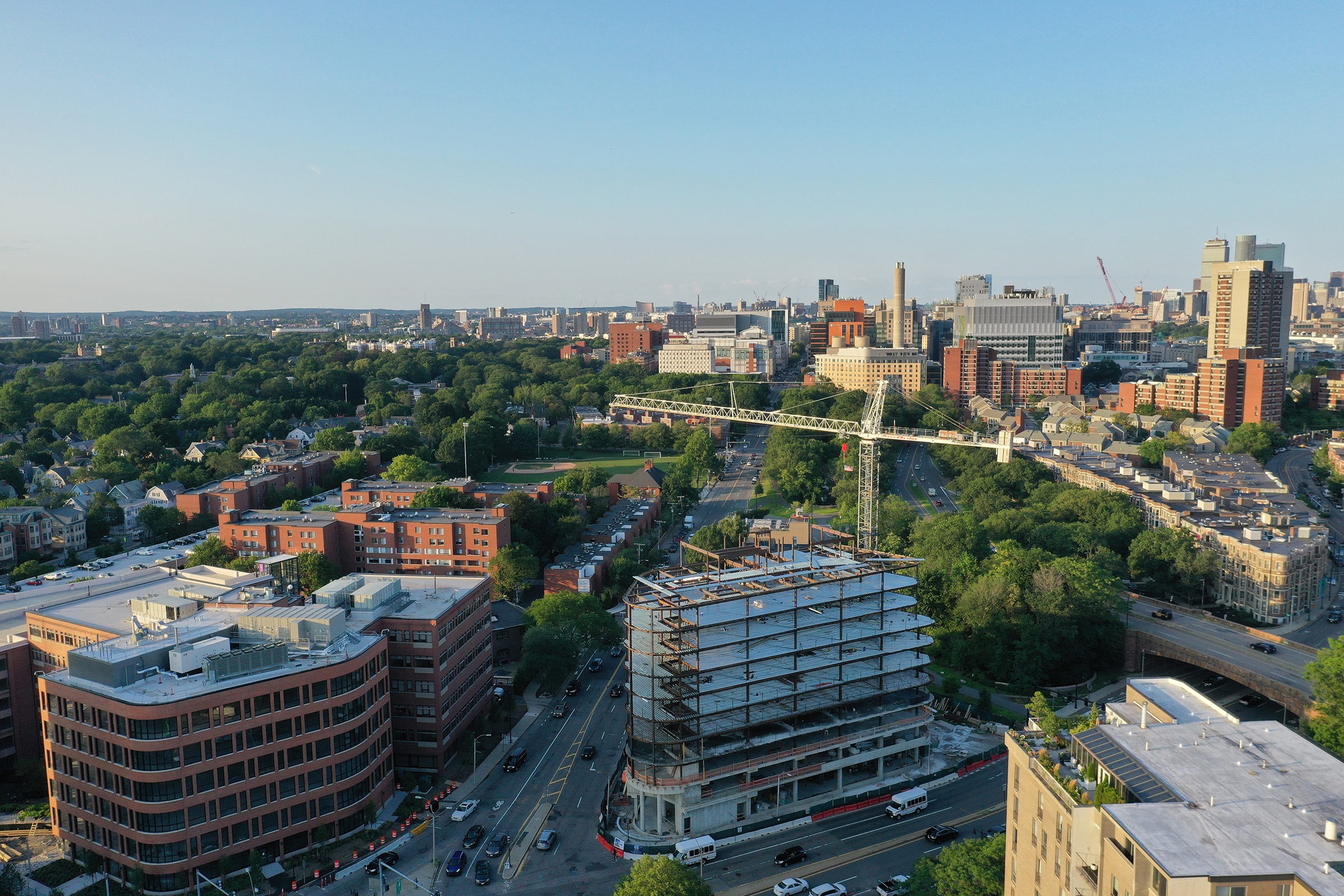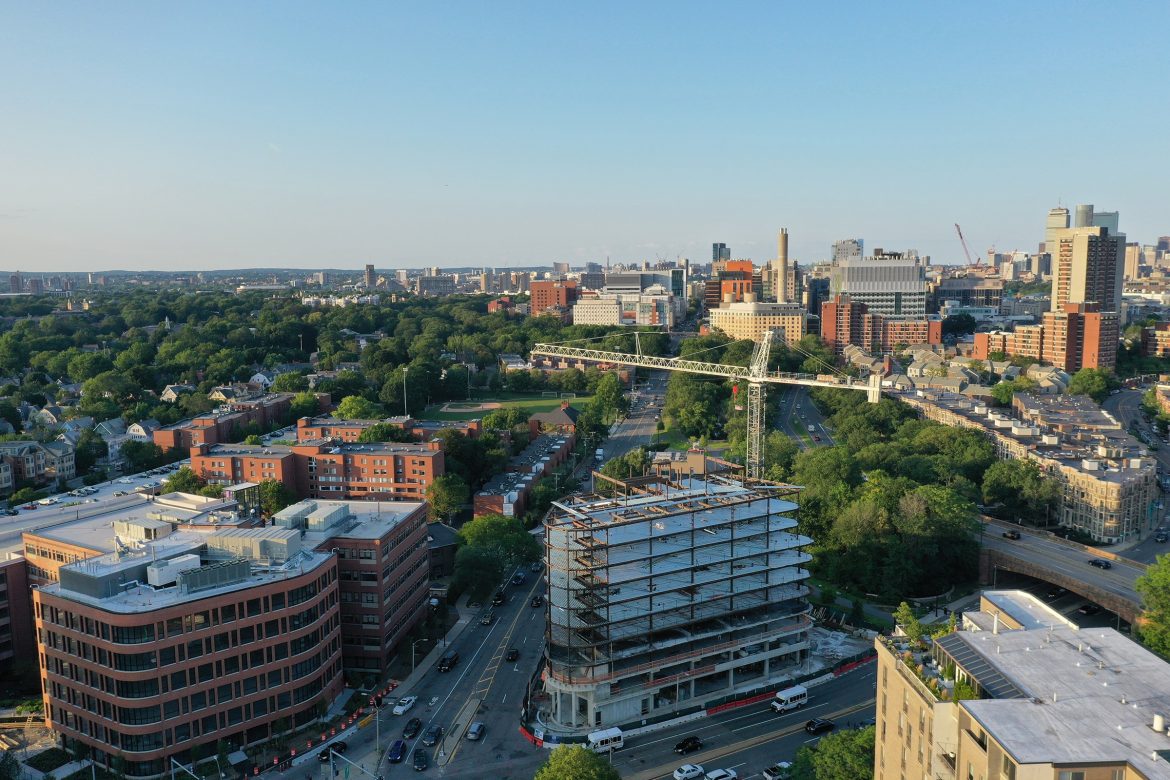UPDATE: September 22, 2021: In a huge win for residents, Boston City Council unanimously passed the BERDO 2.0 ordinance; Mayor Kim Janey is expected to sign it into law. This sets Boston on a path to drastically cutting emissions from buildings and being closer to achieving its climate goals. Just 4 percent of Boston buildings contribute to more than half of the city’s total carbon footprint. BERDO 2.0 will see huge benefits like cleaner air, lower energy bills, and quality jobs as large buildings become more resilient, less expensive to operate, and more comfortable for occupants.
This people-first climate policy is a huge win for Boston and a step that cities across the country should take.
Boston City Council has even more reasons to support passage of the amendment to the Building Energy Reporting and Disclosure Ordinance (BERDO). Since the amendment to require buildings to reduce their emissions over time was introduced, the city council, led by acting council president Matt O’Malley, has hosted a virtual hearing, two working sessions, and a listening session to hear feedback about the legislation. This legislation will ensure that Boston’s large buildings are more resilient, less expensive to operate, have cleaner air, and are more comfortable for occupants. It’ll ensure quality jobs for workers and reduce Boston’s largest source of carbon emissions.
The comments during the public hearing brought home the importance of taking strong action now. Environment, Energy, and Open Spaces Chief Mariama White-Hammond presented impassioned comments about the need to act now—both to protect the most vulnerable in Boston and also to stave off even more costly action in the future. Mothers Out Front called on the council to support the ordinance for current and future generations who are owed swift action to preserve a liveable and healthy climate. The Chinese Progressive Association’s Jennifer Chen, a recent high school graduate, shared the urgency of addressing climate change and the very real impacts of extreme heat she experienced this summer when she suffered heatstroke after only being a few minutes outside. Bostonians of all ages are feeling the effects of climate change now. The council must take action and pass the BERDO 2.0 amendments.
Years of analysis and extensive stakeholder engagement have resulted in one of the most impactful policies to address climate change and meet Boston’s goals. Extensive consideration has gone into the policy development, leading to flexibility in targets so that buildings can take the path that makes the most sense for them, while ensuring that Boston is doing its part to mitigate climate change and put the needs of frontline residents at the forefront.
This policy is designed for equity. The emissions-reduction equitable investment fund provides support for projects that prioritize environmental justice populations and benefits like clean air, lower energy costs, housing stabilization, and increased access to green jobs. The emissions review board will have at least two-thirds community representation to oversee and approve the funds, alternative compliance plans, and enforcement. This is a transformative way to ensure that the communities most impacted by climate change have a proportionate share of the power. The ordinance calls for new workforce opportunities to expand training programs and develop a retrofit and clean energy jobs pipeline that will create local, high-road jobs.
These are lofty goals and the city is committed to them. The updated language requires transparency and accountability not just for emissions reductions but also for community-based metrics like energy cost burden, displacement, indoor and outdoor air quality, worker standards, and economic inclusion. This means the city will track and share their progress to ensure that this policy is a benefit to all Bostonians in their day-to-day lives. To ensure that there is progress and not harm, Boston is creating a Building Energy Retrofit Resource Hub. This is a single source of information for tenants, workers, and building owners for support like financial and technical assistance, training opportunities, fair housing resources, and ongoing education.
Boston has set ambitious goals and now has the opportunity to get them done. Requiring reductions from just 3.5 percent of the buildings in Boston under this standard would prevent 37 million metric tons of carbon emissions over the next 30 years. Boston ranks sixth nationally for urban heat island intensity. This June was the hottest on record in Boston’s history. Boston must continue to lead in the climate fight by being among the cities adopting a performance standard.
The NRDC Action Fund is driving climate action in cities across the country through the Bloomberg Philanthropies American Cities Climate Challenge.


